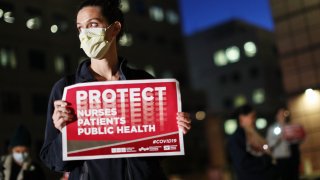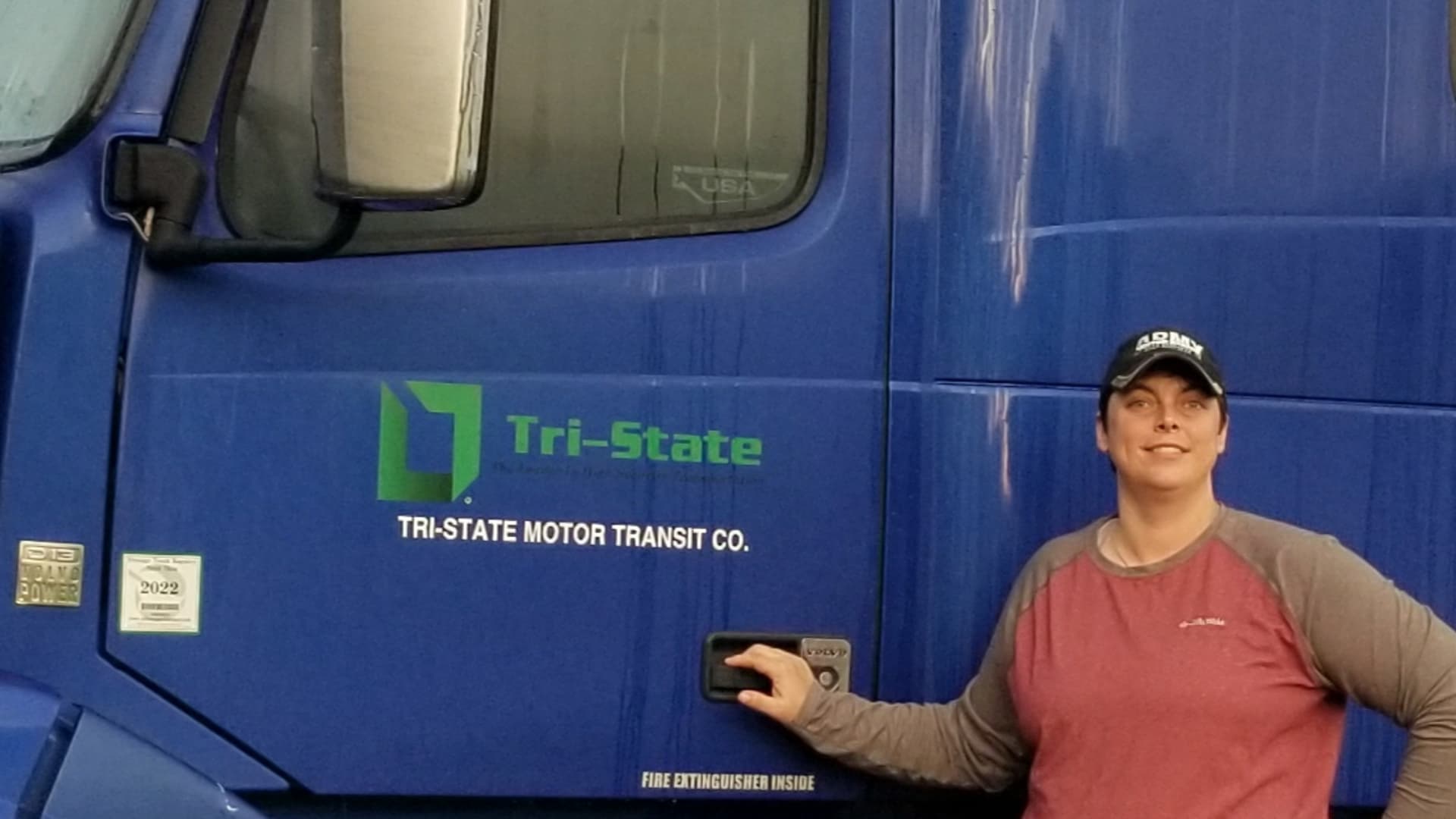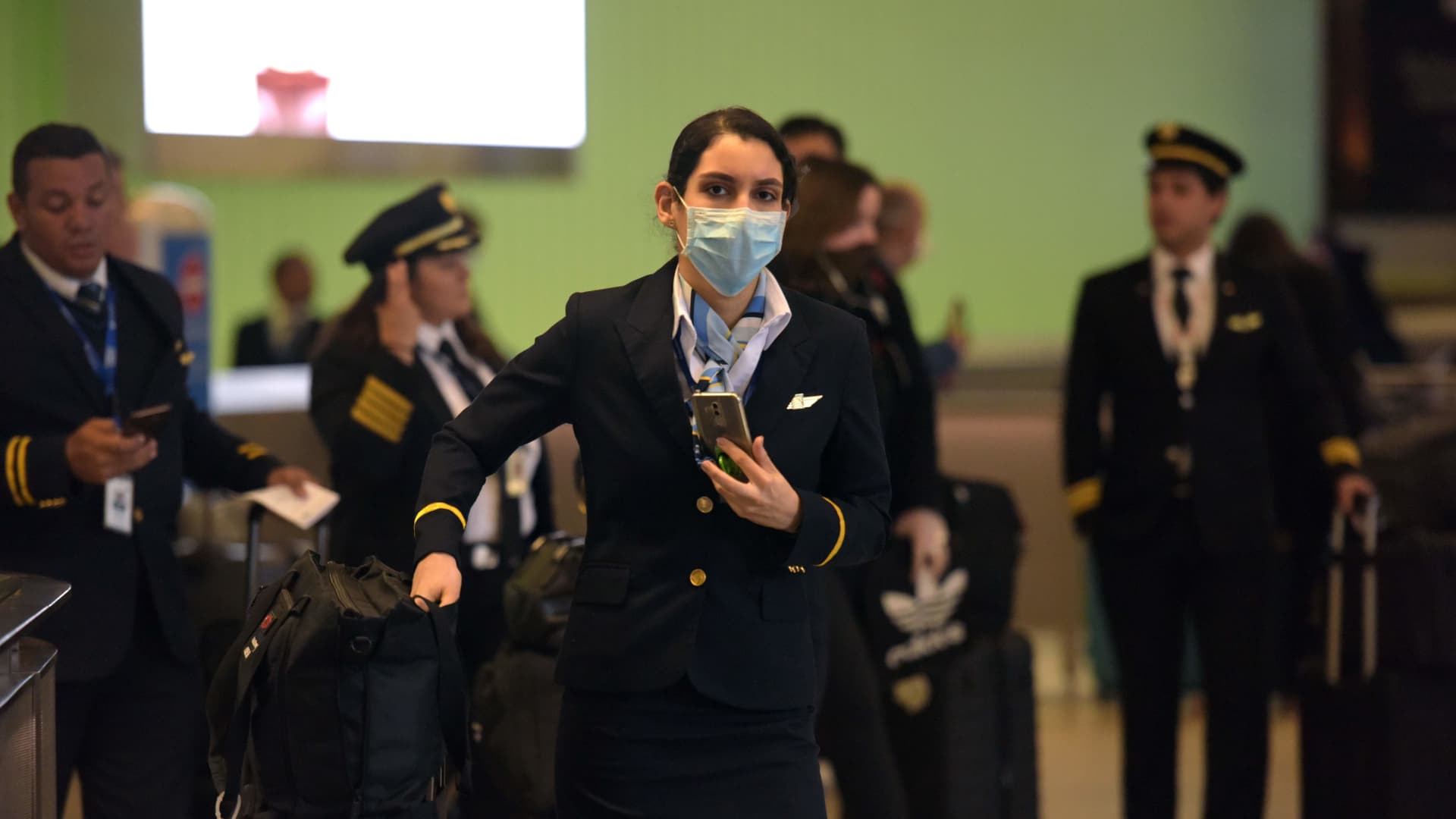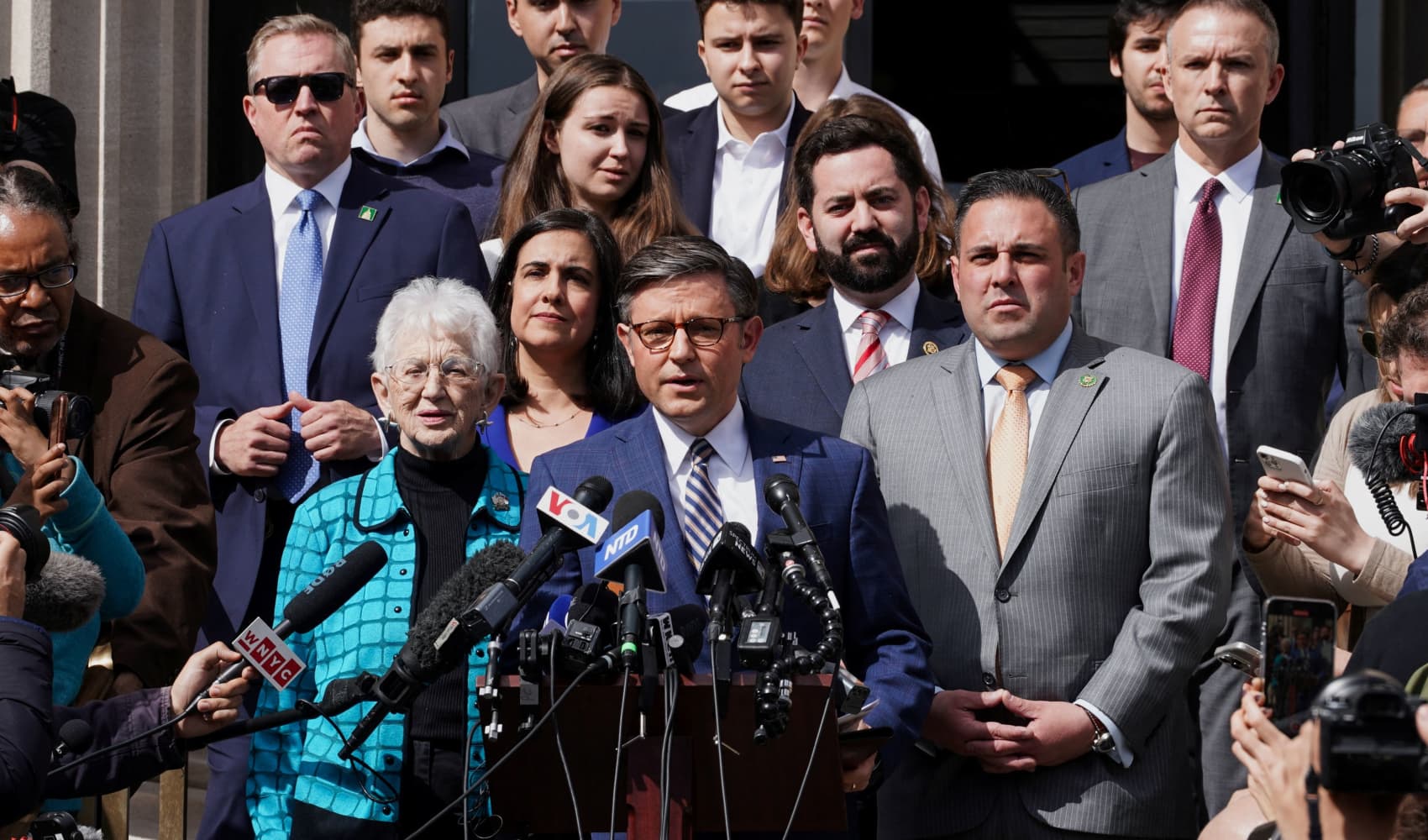
Tina Copeland is an Illinois-based truck driver who works roughly 70 hours a week delivering supplies for Fortune 500 companies, as well as hazardous and sensitive material for the Department of Defense. Her usual work schedule consists of four weeks on the road and then one week at home.
Like thousands of other truck drivers, Copeland, who drives for the company Tri-State, is an essential employee who plays a critical role in delivering the vital supplies many companies and households need today.
As fears around the coronavirus continue to spread, Copeland, who has been in the trucking business for five years, says she's facing obstacles she's never experienced before.
"It's getting pretty hard," she tells CNBC Make It, "especially when I drive nights."
At some truck stops, showers have been closed down because "workers don't want to clean them," Copeland says. And since most cities have shut down restaurants, she says truckers are having a hard time finding food because their truck can't fit in the drive-thru line. "They tell us that we're not able to walk up to the window and that we have to be in a vehicle," she says, while explaining that this becomes a huge issue late at night when restaurants that serve take-out are closed.
This difficulty, Copeland explains, often leads to truck drivers driving for hours before they can find a place to eat.
While the spread of the coronavirus has undoubtedly changed the way we all live and work, essential workers in a range of industries, from trucking to retail, are standing on the front lines to help the public get through the pandemic. CNBC Make It spoke with six women from these industries about what it's like to do their jobs during this unprecedented time.

Health and safety concerns
Money Report
As someone who spends the majority of her time on the road, Copeland says she's seen some states take the severity of this virus more seriously than others.
In Oklahoma, for example, she says there have been checkpoints where she's had to get her temperature taken before she could even get to her destination to drop off her supplies. Meanwhile, in the "southeast part of the country," she says a lot of "people still want to put their arm around you and give you a hug or shake your hand."
"I pretty much have already told myself that if I don't get sick, then more than likely I feel like I'm going to become a carrier," says Copeland who lives with her boyfriend who is also a truck driver.
Talah Barner, who is a full-time employee at a Target store in Maryland, says she never thought her health would become a top concern when she joined the big box store a little over a year ago. Though her employer allows staff to wear masks and gloves at work, the 23-year-old says she's unable to wear the provided gloves because she's allergic to latex. As a result, she says, she takes constant breaks throughout the day to run to the bathroom to wash her hands.
"I'm also allergic to penicillin, ibuprofen and many things that are supposed to keep you healthy," explains Barner, who adds that the last month has been "an experience [she] never really thought or expected to have."

Trouble with accessing necessary supplies and equipment
Like many health-care professionals, Samone Pugh, a Maryland-based nurse who asked that the name of her employer not be shared for privacy reasons, says that the lack of personal protective equipment, including masks and gloves, has been one of her biggest concerns.
"I kind of feel like it is out of our control because it's a nationwide shortage," the 22-year-old says, while explaining that it is unsafe for nurses and doctors to go into a room and care for a patient without proper gear.
Right now, she says, when her department calls to order more supplies, they have been told by their medical supplier that they can only get one box of disinfectant wipes and one box of masks at a time.
Keena M., an Ohio-based mail carrier who asked that her last name not be mentioned for privacy protection, says many post office employees are also scrambling to find gloves and masks that they can use when delivering mail. Thankfully, at her office location in Ohio, she says the mail carriers have received generous glove and mask donations from customers.

Adjusting to new work schedules
Since the start of the coronavirus pandemic, Barner says she's been asked on several occasions to work a double shift at Target in order to help out at the cash register or stock shelves.
Keena M., who's been working at the post office for a little over seven years now, says she's also had to increase the amount of hours she works. With schools closed, many parents have had to call out of work due to a lack of child-care options, she says, requiring some employees to work overtime.
"It almost feels like we're still working through the holiday season," she says. "The holiday season can be very hectic for the post office because we are working our maxed amount of 12 hours per day and six or seven days per week."
Jasmine, a New York-based flight attendant who asked that her last name and company name not be mentioned to protect her privacy, says she's experienced the opposite in her industry. As the airline industry takes a hard hit due to travel bans and restrictions, Jasmine says her company has asked many employees to cut back their hours and take voluntary unpaid leave in order to avoid firing staff.
"I'm taking voluntary leave for the whole month of April," the 25-year-old says. "[My company] also offered May and June, but I don't know if I'm going to do that."
If she does end up having to take leave past April, Jasmine says she may consider picking up a side hustle to bring in extra income. Thankfully, she says, she's not too worried about job security as her company has assured employees that their jobs will still be there when they return from leave.

Making child-care adjustments
With thousands of schools closed across the country, many working parents have been forced to make alternative arrangements for child care. Keena M., who has a daughter, says she's lucky her child is old enough to stay home by herself. But, she says, the arrangement they have been forced to implement is not the norm for her or her family.
"She'll be fine being home by herself, but it's more of a comfort thing for her because she normally goes over to my mom's house while I'm at work," she explains. "But with this situation, I can't risk her having something [unknowingly] and then taking it over to my parent's house because [my parents] have a lot of medical issues."
"It's uncomfortable because I don't know what might happen while I'm at work," Keena M. explains. "Sometimes I work 10 to 12 hours a day so that means she's home 7 a.m. to 7 p.m. all by herself."
Lekeya Hutton, a registered nurse in Maryland, is a mom to two daughters ages 20 and 9. With schools closed, she says she's lucky that her 20-year-old is able to be at home from college with her younger daughter. But, she says, not all of her colleagues are as fortunate and a few have had to call out due to a lack of child-care options.
Thankfully, she says, her job sent out a poll to get a sense of who needed child care and at what times. After reviewing the results, she says her hospital partnered with the local YMCA to provide free child care for essential employees between the hours of 7 a.m. and 6 p.m.
"I thought that was awesome," says Hutton, who has worked in the health-care industry for 20 years. With health-care workers on the front lines of this pandemic, she says she's proud of hospitals who are working with their staff to say, "we're going to try to work with you to make sure your kids are taken care of because we need you here."
Check out: The best credit cards of 2021 could earn you over $1,000 in 5 years
Don't miss: How women could be uniquely impacted by the coronavirus






